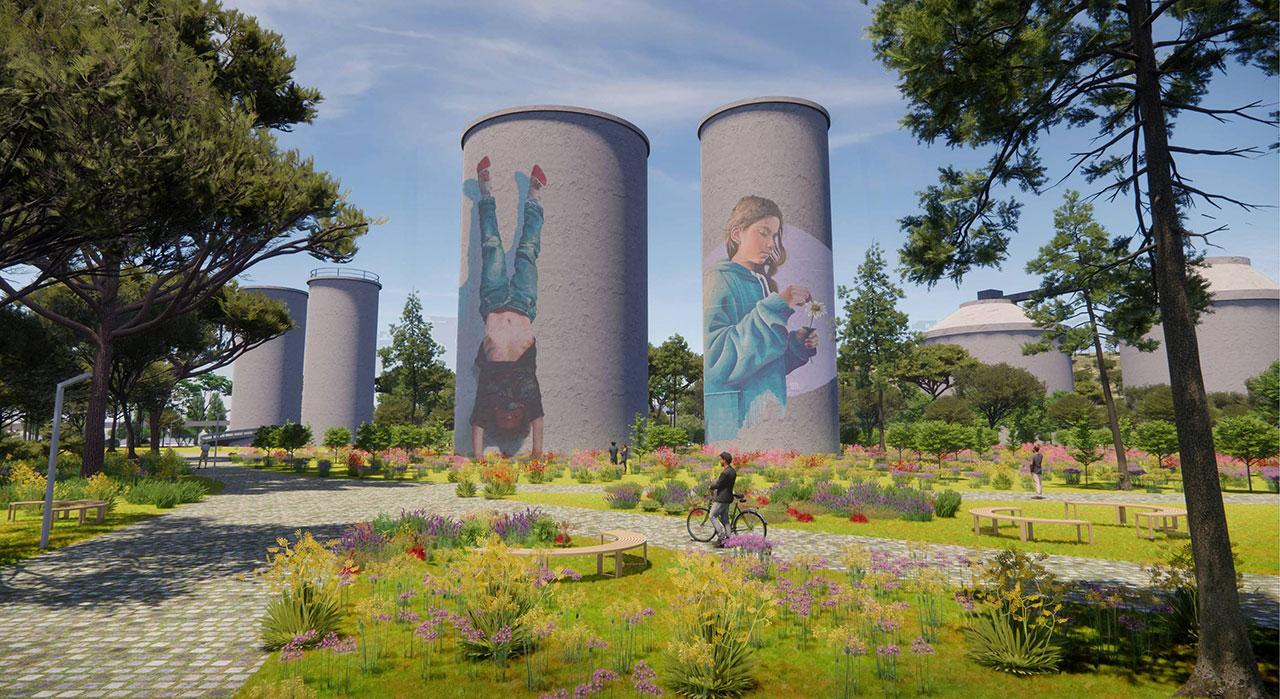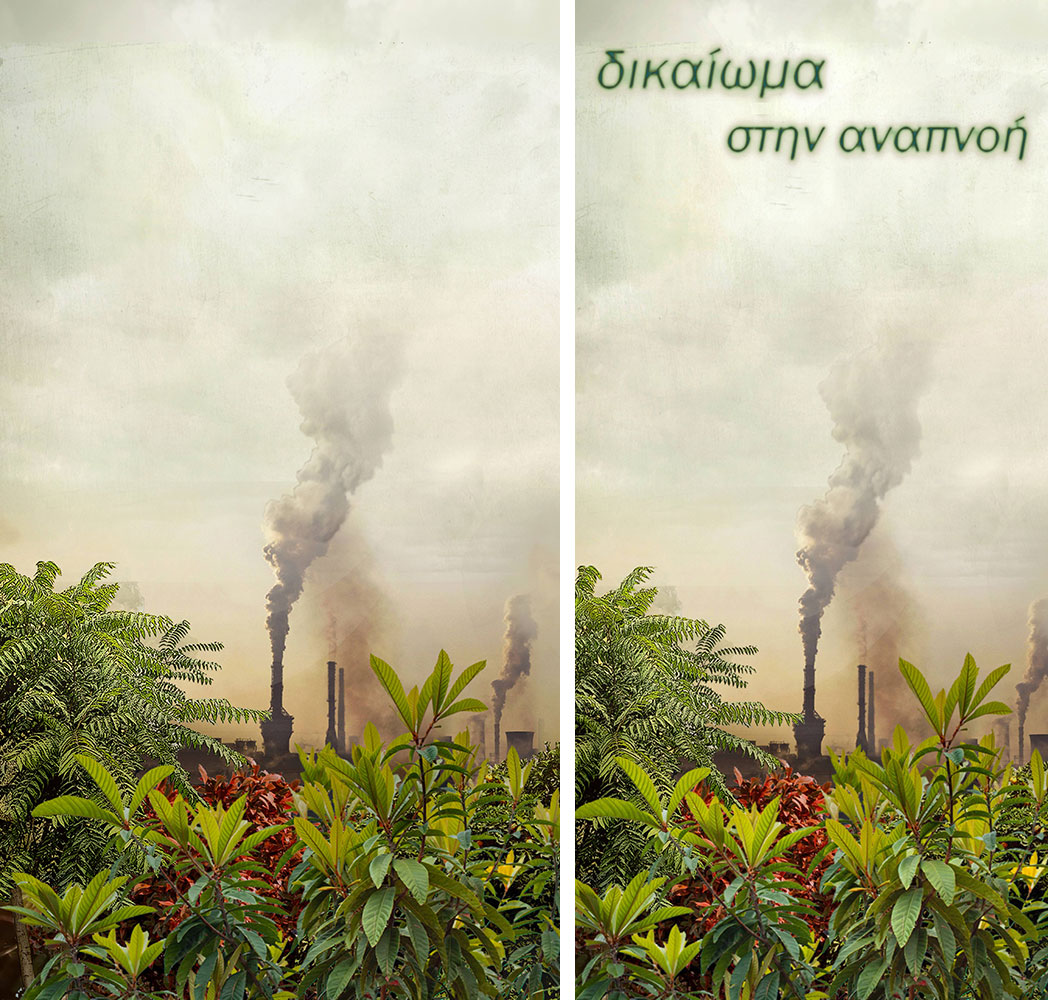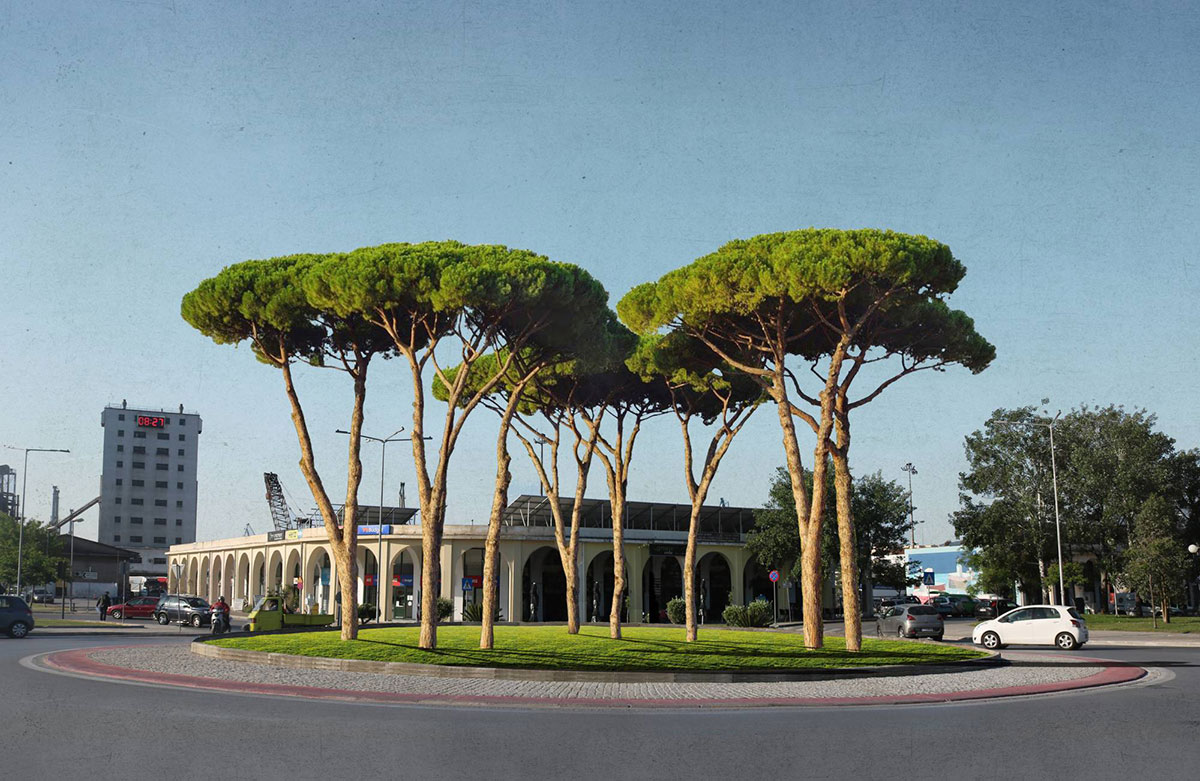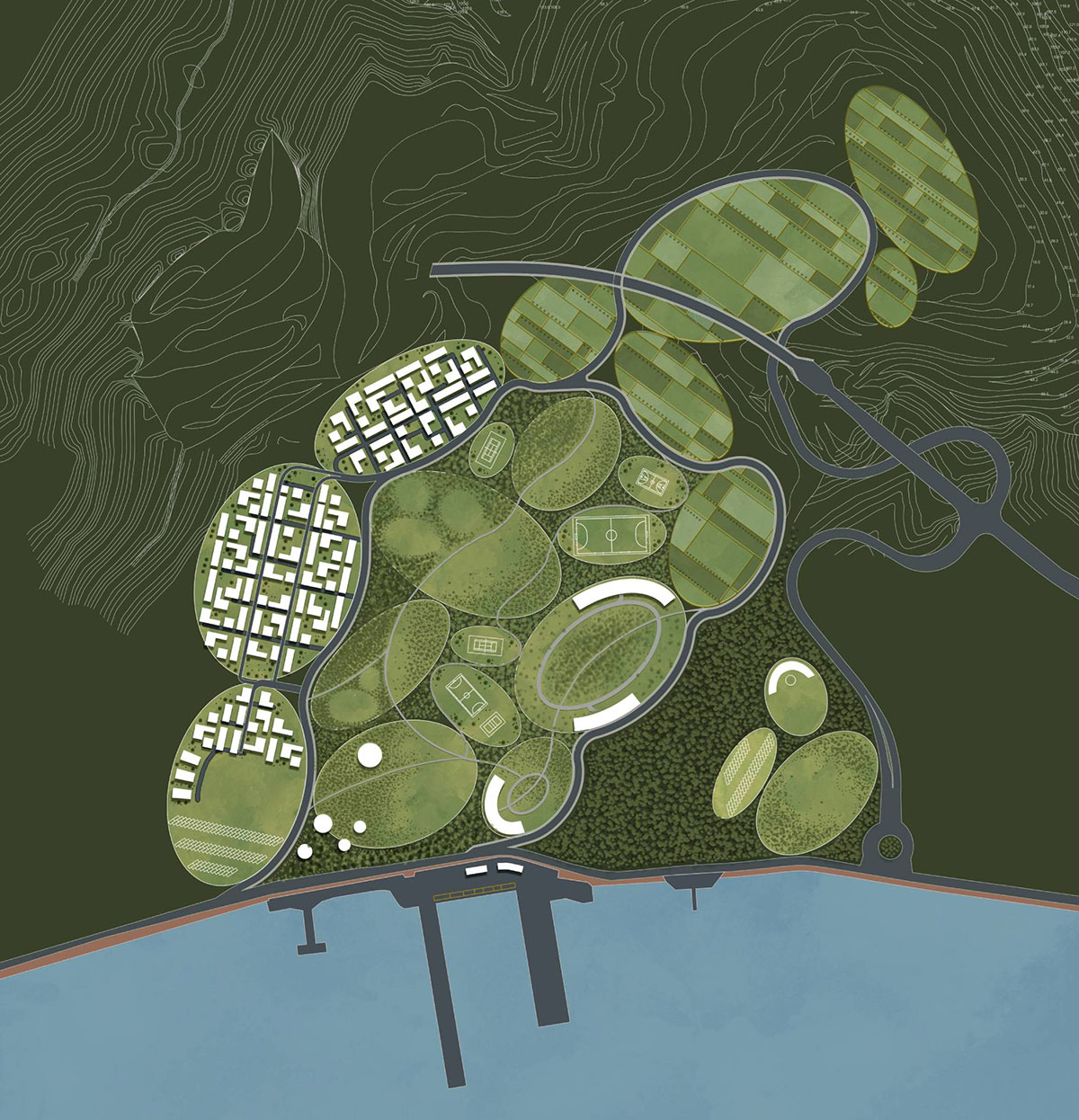ARCHITECTURE: Right To Breath
 As we inhale 15,000 litres of air every day, we are continually exposed to air pollution, especially in large cities. These gases and fine particles are not only harmful to our health, but they also damage the environment and ecosystems and accelerate climate change. Where does air pollution come from? Although pollutants may be of natural origin: pollens, forest fires, sand mists, soil erosion, and volcanic eruptions generate pollution over which we have very little control, human activity is the main source of air pollution. That is evidenced by the sharp decline in air quality from the 19th century, with the development of industry and road traffic.
As we inhale 15,000 litres of air every day, we are continually exposed to air pollution, especially in large cities. These gases and fine particles are not only harmful to our health, but they also damage the environment and ecosystems and accelerate climate change. Where does air pollution come from? Although pollutants may be of natural origin: pollens, forest fires, sand mists, soil erosion, and volcanic eruptions generate pollution over which we have very little control, human activity is the main source of air pollution. That is evidenced by the sharp decline in air quality from the 19th century, with the development of industry and road traffic.
By Dimitris Lempesis
Photo: Dr. Faye Tzanetoulakou Archive
The recent flood disaster of Volos-Karditsa and Larissa was a result of heavy and prolonged rainfall in a region prone to flooding. The rainfall has exceeded normal levels, leading to the overflow of rivers and the inundation of low-lying areas. But now the Volos in standing on his feet again, the exhibition “RIGHT TO BREATHE”. The exhibition includes selected works from the Department of Civil Engineering at the University of Thessaly, from two courses in the years 2022 and 2023. It is organized by the instructors of the courses, Professor Kostas Manolidis and Dr. Faye Tzanetoulakou, under the auspices of the Department of Civil Engineering. The course “Right To Breathe” explored the possibility of a radical transformation: from a harmful industrial operation to a lung of environmental and social empowerment. Refuse-derived fuel (RDF) is a type of fuel that is produced from various types of waste materials such as municipal solid waste (MSW), commercial waste, and industrial waste. The process of producing RDF involves shredding and drying the waste material to remove any moisture content and unwanted materials, such as metals, plastics, and glass. The resulting RDF is a high-energy fuel that can be used in a variety of applications, including power generation and cement production. RDF has several benefits, including reducing the amount of waste that is sent to landfills and conserving natural resources. However, the production and use of RDF also has negative environmental impacts, such as air pollution and increased transportation emissions. The cement factory of AGET-HERAKLIS, which is now under the control of LAFARGE-HOLCIM, has been a source of disturbance and discontent for the local community for decades. The dispersion of cement dust in the past and pollution from low-quality fuels have at times sparked strong social reactions. However, in the last five years, the incineration of processed waste (RDF), often of unspecified origin and composition, has triggered an unprecedented social outcry. This practice has been accused of producing carcinogenic dioxins and heavy metals, as well as increasing the concentration of airborne particulate matter in the atmosphere. The unbearable chemical odor that frequently pervades the air in Volos is also attributed to waste incineration. As a result, any social legitimacy of the factory has collapsed, and in the public opinion of Volos, the necessity of its removal from the city has been firmly established. Refuse-derived fuel (RDF) is a type of fuel that is produced from various types of waste materials such as municipal solid waste (MSW), commercial waste, and industrial waste. The process of producing RDF involves shredding and drying the waste material to remove any moisture content and unwanted materials, such as metals, plastics, and glass. The resulting RDF is a high-energy fuel that can be used in a variety of applications, including power generation and cement production. RDF has several benefits, including reducing the amount of waste that is sent to landfills, decreasing greenhouse gas emissions, and conserving natural resources. However, the production and use of RDF also has negative environmental impacts, such as air pollution and increased transportation emissions. Air pollution is rising at Volos, according to measurements taken by the Aristotle University of Thessaloniki, which show high traces of 14 heavy metals. A second study by Thessaly University revealed a significant correlation between diseases of the cardio-respiratory system and the presence of suspended particles in the atmosphere. The measurements were taken after locals protested about a high incidence of illnesses. According to the Aristotle University’s Chemistry Department, 20 percent of the pollution is caused by the loading and unloading of iron scrap by steelmakers, and 17 percent by gasoline-fueled vehicles. A further 10 to 15 percent is attributed to the activities of a local cement company, due to road dust, garbage incineration and pollution emitted by old vehicles. In this perspective, it was deemed reasonable to explore scenarios for the redevelopment and reuse of the constrained area and facilities of the industry. The objective of the workshop was to identify such scenarios that would transform the dystopian environment the cement factory into a valuable public infrastructure. A top priority was the healing of the wounded landscape and the recovery of nature. Through processes involving the removal of structures, soil restoration, tree planting, and the revitalization of wild vegetation, a significant urban park with supportive functions for sports, culture, and education can be created. Additionally, the integration of revenue-generating uses such as housing and recreation can provide financial resources for the project. With its design proposals, the workshop aimed to assess the potential of the area that will contribute to a more environmentally and socially just future for Volos. In the same spirit, the elective course “Disobedient Soils” addressed the vitality of nature and the reconsideration of the political relationship between humans and the natural world in the city. The presence of nature in urban space has dimensions deeper than its common decorative and microclimatic utility. Vegetation connects us with the fundamental processes of the living world, organizes valuable small ecosystems, and sustains the magical economy of decay and regeneration. This is precisely why it disobeys its exploitation and the illusions of a sterilized technological utopia. The issue of urban greenery in Volos was approached with a visionary character. The goal was the radical improvement of the meager proportion of greenery in the urban areas of the Municipality. Thus, in specific locations within the city (undeveloped plots, squares, road islands, etc.), outdoor designs based on dense planting of selected trees were proposed. Emphasis was placed on the visual impact of the proposals, which would actively promote the demand for the ecological revitalization of the city.
Photo: From the exhibition “Right To Breath”, Dr. Faye Tzanetoulakou Archive
Info: Curators: Kostas Manolidis and Dr. Faye Tzanetoulakou, Delta Art Gallery, 4 Hatziargiri, Volos, Greece, duration: 26/9-12/10/2023, Days & Hours: Mon 19:00-21:30, Tue, Thu-Fri 11:00-14:00 & 18:00-21:00, Wed & Sat 11:00-15:00, www.deltaartgallery.gr/



